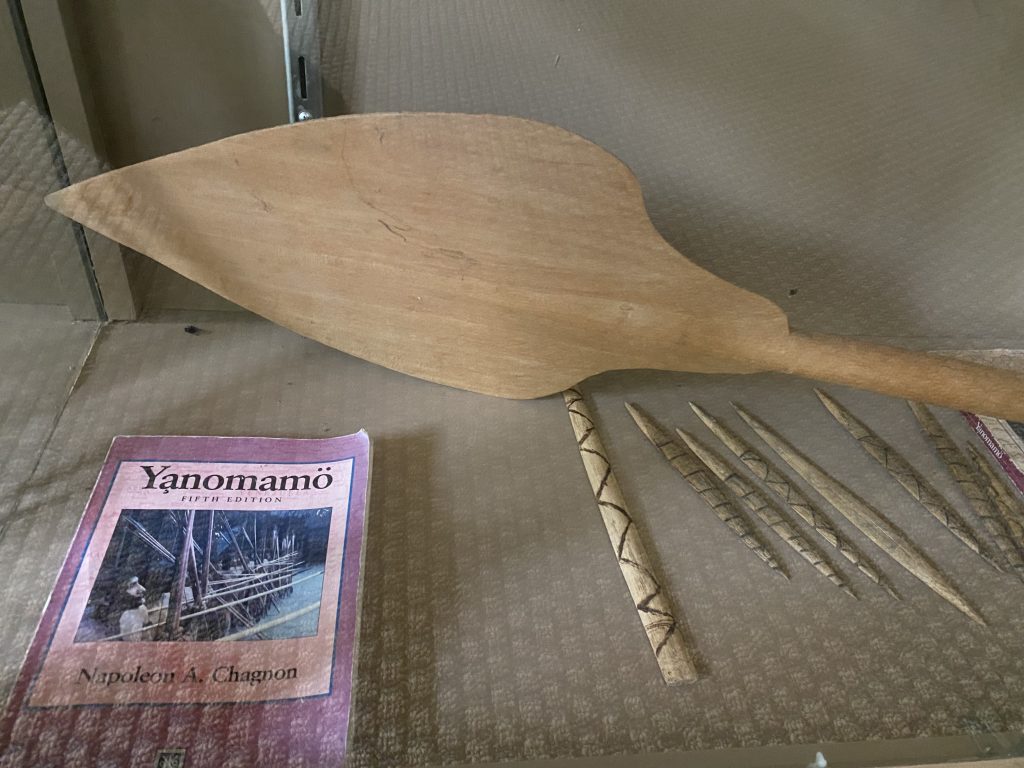MISHAWAKA–– In the 1990s, Bethel became the first college in the country to adopt a people group. The people group chosen were the Yanomamo people, a tribe known for violence, revenge killings and culture and killing their own people. They are located on the border of Venezuela and Brazil, and a part of the tribe is here on Bethel’s campus, through artifacts that sit in the Shiloh prayer chapel.
Under the leadership of the vice president in the 1990s, Bethel decided to adopt a people group to pray for, support, send task force groups to and have good connections with, and a group met to discuss which people group should be adopted. In this group was Christian Davis, Ph.D., professor of literature and language studies, who is now serving his twenty-ninth year here at Bethel. After about eight weeks of prayer and consideration, the small group of faculty, staff and students chose a tribe.
“We came together and chose the Yanomamo people unanimously, even though no one had been pushing for them,” Davis said.
Everyone in the group had discussed many different suggestions of which people group Bethel should adopt, but in the end the group decided on one that had not previously been mentioned.
“It had to be the Holy Spirit, we just agreed that should be it,” Davis said.

Several task force trips were sent down to the Yanomamo tribe, led by Jeremy and Mindy Tice, who were the missionaries working with the tribe and have connections with Bethel as well. Bethel continued to send financial support and teams regularly.
Missionary brothers Gary and Michael Dawson, with their wives, Marie and Keila, came and spoke in chapel and brought with them a former witch doctor who had been converted to Christianity. The witch doctor spoke through an interpreter in chapel. The Dawson brothers grew up in Venezuela and therefore have citizenship there. The President of Venezuela ordered out all missionaries, but since the Dawson’s have citizenship, they were able to stay, and are the only connection Bethel still has with the Yanomamo people.
It has been many years since Bethel has done anything in connection with the Yanomamo people. The last time any activity happened was in the early 2000s when a Yanomamo shaman spoke in one of Davis’s classes.
“I really wish Bethel would connect with them, but I don’t know if we can send teams there yet,” Davis said.
Students who are curious to learn more can visit the artifacts in Shiloh, can check out a handful of books about the Yanomamo from the Bethel library or can go online to purchase one of Michael Dawson’s books, “Growing up Yanomamo,” published in 2009, or his sequel, “Growing Up Yanomamo Today: By Faith Not By Sight,” which was just published in 2021.